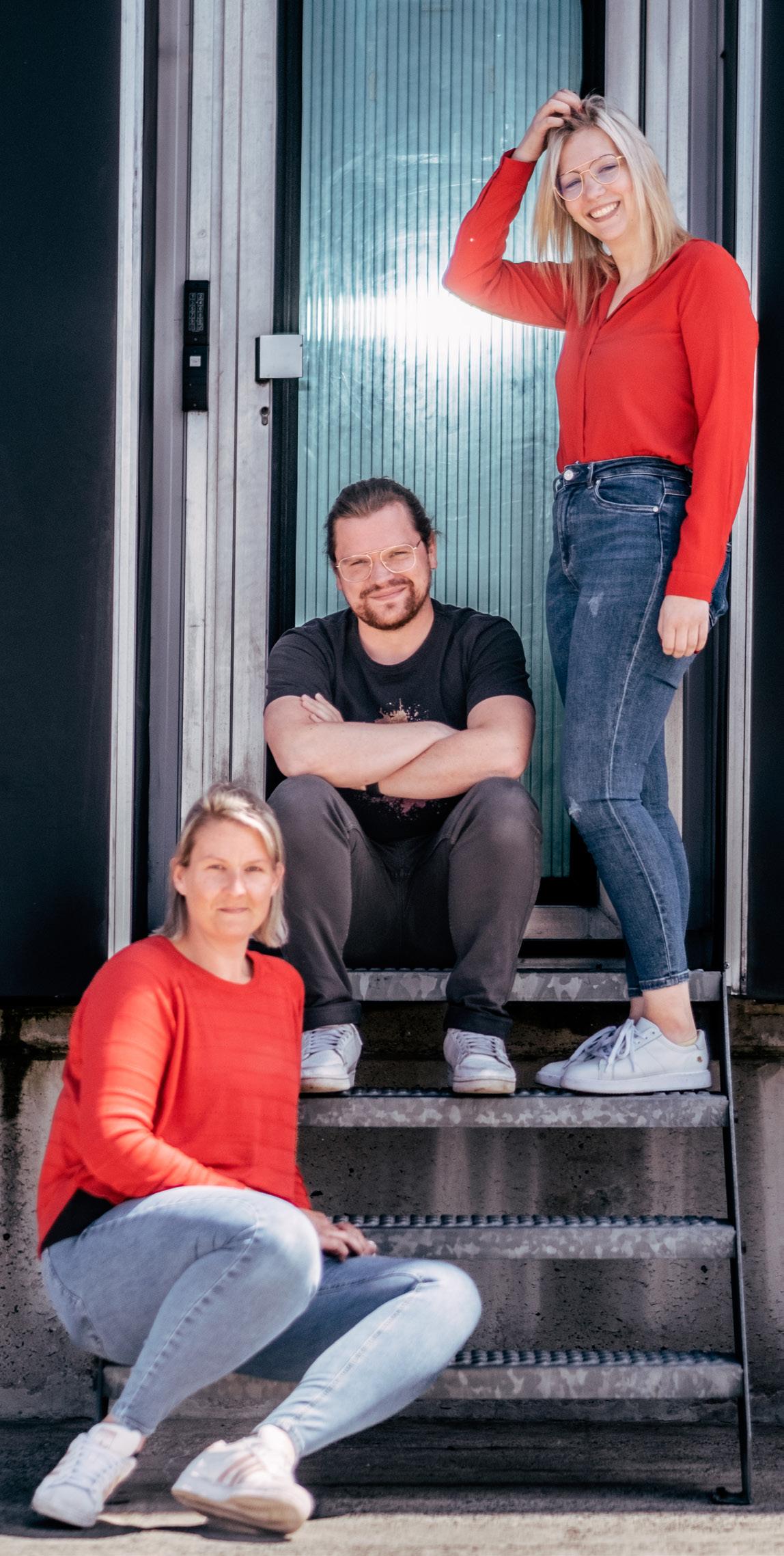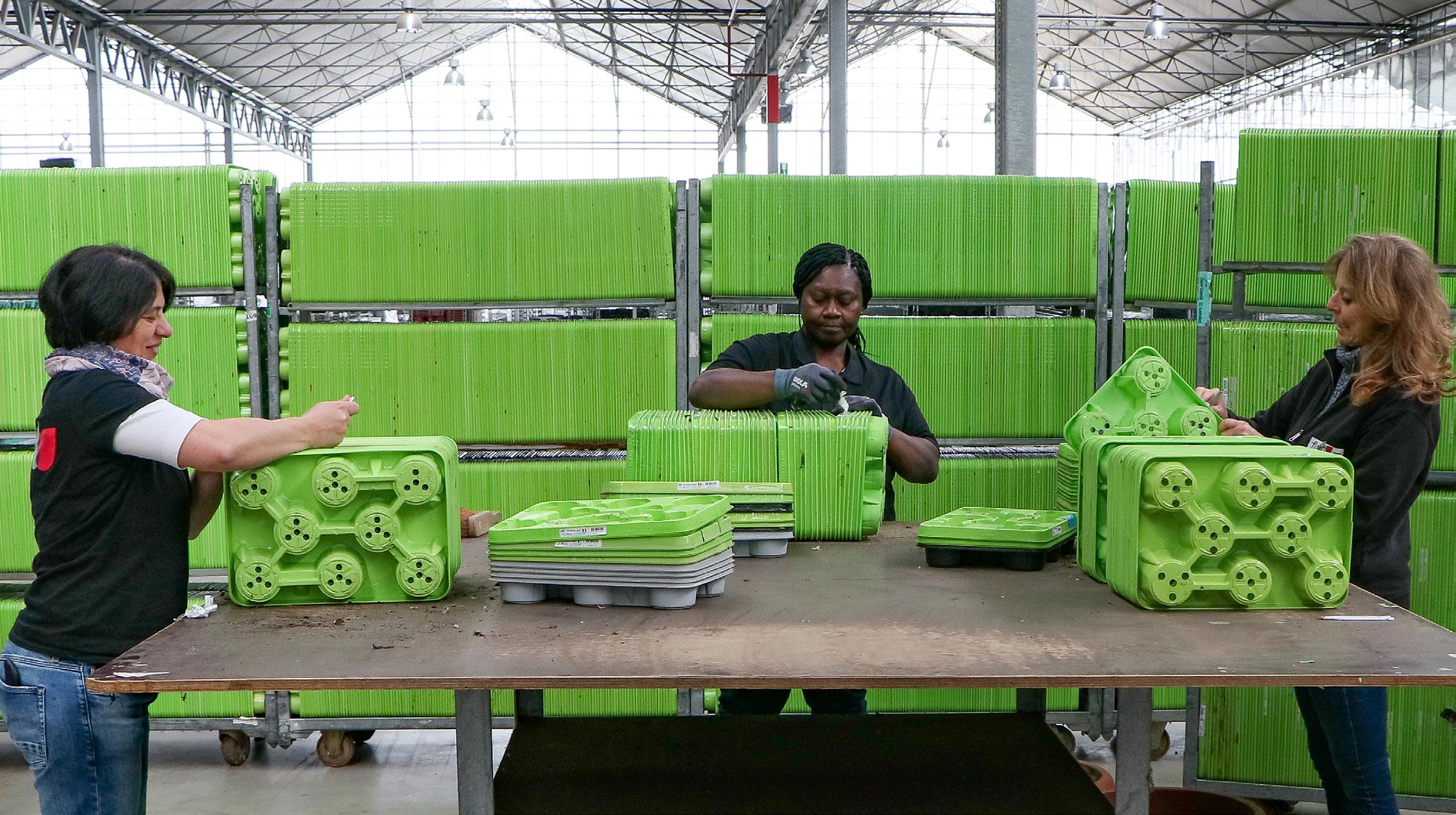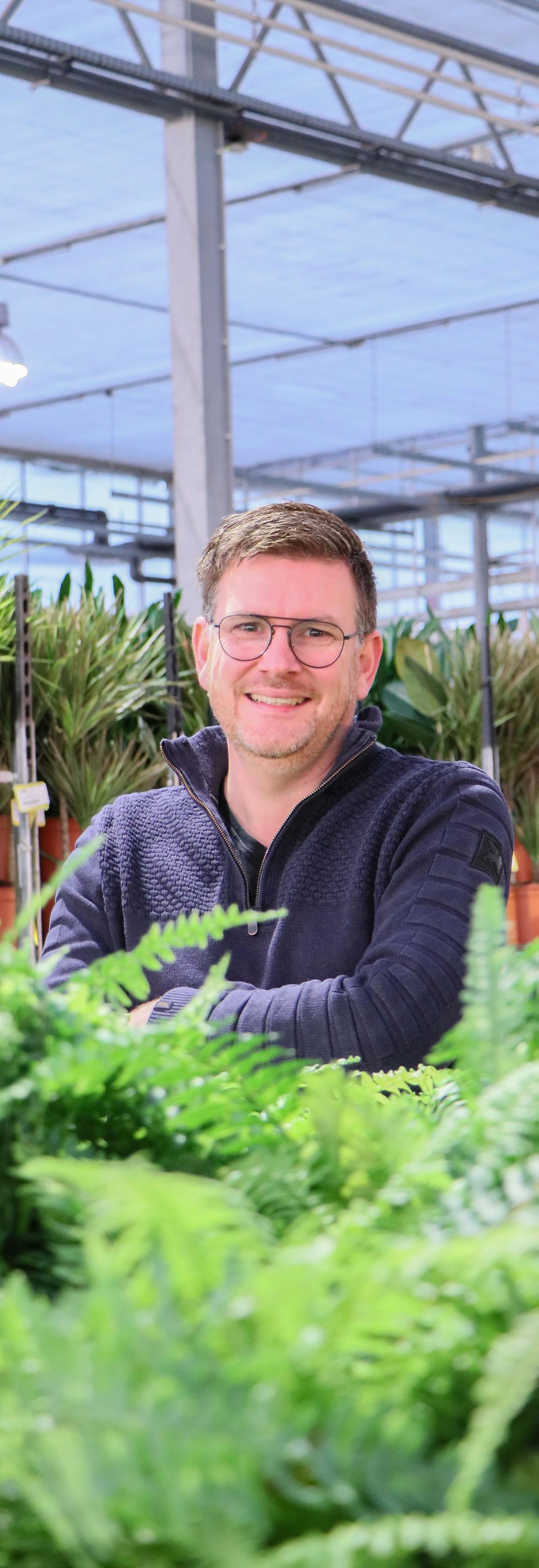A better world



Together with the entire Floréac team, I am extremely proud of this publication. A first. For the first time, we bundle together a global overview of our vision, our efforts and our achievements in the field of sustainable and socially responsible business.
In June 2022, we redefined the strategic lines of force for Floréac. In that plan, we explicitly make room for “working for a better world”. After all, it is our duty to concretely and ambitiously seek positive impact on our own footprint, on sustainability throughout the chain, on social commitment and on corporate social responsibility in the broad sense.
Creating a better world goes beyond reducing waste streams, reducing CO2 emissions, or just doing what the government requires us to do. A better world comes from our intrinsic motivation. Our motivation to make the world a better place in everything we do. We look ahead.
In 2023, for instance, we expect more clarity on the European ‘Corporate Sustainability Reporting Directive’, a directive on reporting on corporate social responsibility. A directive we are eager to see coming. And that while Floréac is not among the companies that will be the first to be required to follow this directive.
I am particularly pleased that our employees carry this commitment deeply in their hearts. We still have many steps to take ourselves, at the same time we already want to raise awareness and set an example. It’s a vision we share with Royal Lemkes, our sister company within Plantify Partners Europe. Together we are strong, and so we also share knowledge and strengths with them to take steps in this important field.
In short, Floréac wants to contribute to a better world by spreading the happiness of plants responsibly throughout Europe. Our goal in a nutshell. Hopefully, this report will also inspire you in terms of corporate social responsibility and sustainability.
Benoit Strauven CEO
Our industry constantly faces changing legislations on packaging, emissions from production sites, resources used, peat and social welfare. Floréac closely monitors these developments. We also want to guarantee and demonstrate our progress. That is why we have been certified with the MPS GTP standard and joined SEDEX and FSI 2025.
MPS stands for Environment Project Floriculture. It is a global sector initiative that allows companies to be audited. For growers, for example, there are MPS A-B-C GAP (Good Agricultural Practice) and MPS SQ (Socially Qualified).

Why certification demonstrating good entrepreneurship is a necessity today? On the one hand because customers demand it and we and our suppliers do have to follow suit. But also because we want to work on a better world from an intrinsic motivation. So we don’t just go for minimum targets to achieve the certificates, but set our targets annually in terms of social and environmental requirements
Floréac holds the MPS Florimark GTP (Good Trade Practice) and the MPS COC (Chain of Custody) certificate. We are audited annually by an independent auditing institution for social, quality and environmental requirements. Our certificates show that we control our processes. In concrete terms? We have good product quality, a reliable supply and well-trained employees
Currently, our Belgian and Dutch sites still have separate certifications. From 2024, we will combine all this under one MPS Florimark GTP certification.

FSI stands for Floriculture Sustainability Initiative, a chain organisation within the floriculture sector. FSI 2025 arose from a need to work together constructively around transparent and responsible trade Together with other sector parties, we tackle the most pressing issues to achieve more impact.
The targets from FSI are in line with our own. Our target? To make measurable and increase the percentage of products sourced from sustainable growers with ‘Good Agricultural Practice’ (GAP) certification. Last year, about 85% of our trade was sourced from GAP-certified growers. Our ambition is to ensure 90% sustainable sourcing by 2025 and to increase this further in the years thereafter.
FSI also promotes the importance of social aspects in procurement. Testing growers on their ‘socially qualified’ certification is becoming essential. We are also pursuing this. Social equality and living wages throughout the chain is a fundamental part of the evolution towards a better world for all.
Since 2022, we have been a member of Sedex. This leading organisation provides online platforms for companies to manage and improve working conditions in global supply chains. Floréac is committed to having working conditions, environmental policies and social equality in place within the organisation and in the chain
An audit by Sedex shows that Floréac scores well on social equality, working conditions and concern for a better world. But everything could be better. Sedex holds up a fine mirror to us with points where we can still improve. We expect our partners to pursue these goals in the same way.
Creating a nicer world is, of course, something you do first and foremost within your own house. Both proactively and reactively, we respond to various themes that promote the well-being of our employees For example, we launched ‘The Floréac Way’, clearly defined core values and a guide on how we deal with our partners in the sector. We also conducted an extensive survey on employee satisfaction and engagement.

Reduce, Reuse, Recycle - Three great ways you as an individual or an organisation can eliminate waste and protect the environment
By handling our waste streams responsibly, we limit negative impact on the environment. Waste flows are therefore also always part of a CO2 footprint calculation. Within Floréac, the Reduce, Reuse, Recycle principle is the standard.
Specifically, for the first time we carried out a full and detailed calculation of our CO2 footprint. To do this, we have mapped out the necessary information on waste flows, consumption of water, energy and other products and transport movements. With these results, we will now get to work and address the issues that contribute maximally to reducing our footprint. In the coming years, we will continue to measure our footprint and monitor developments.
We limit our energy consumption by reducing waste and making maximum use of renewable sources. For example, studies are under way to generate our own green energy at both sites
Biggest challenge? The heating of our sites. It largely determines our CO2 footprint. Most urgent question is therefore: how can we retain heat better and thus reduce our consumption?
Every day, we spread plant happiness across Europe. Downside of the coin? This involves transport kilometres that contribute to increasing the CO2 footprint. Here, too, we look for constructive solutions. One of them is geographical spread. For example, Floréac has offices and a logistics operation in both the Netherlands and Belgium. The biggest advantage is that we can choose the most advantageous location where we prepare the carts for shipment. This allows us to reduce the number of transport kilometres of the plants and therefore the CO2 footprint per plant. In addition, we load our carts and trucks as optimally as possible
But two locations also means a lot of back-and-forth travel by our employees. These kilometres, and of course commuting, have a significant footprint. Teleworking and digital meetings are part of the solution. Furthermore, we continue to look for ways to reduce the impact of this distance travelled. The upcoming electrification of the vehicle fleet is undoubtedly an important element in this.
From the national legislations in our sales countries, there are more and more requirements around packaging. The UK came up with the Plastic Packaging Tax last year, Germany has had the Verpackungsgezets for quite some time, in France there is now a full focus on Triman and packaging declaration in Austria is also changing.
Floréac wants to actively respond to this. Our job is to relieve our customers of this Sustainability in our industry is a chain responsibility. Everything starts with the choices our suppliers make around packaging. Just think of adjustments in trays, pots or seal with regard to materials used. These have an impact throughout the chain
From Plantify Partners Europe, together with Royal Lemkes, we are developing initiatives to reduce the amount of non-recycled plastic in our trade. So as to have a minimal impact on the environment.
What we cannot reuse, we recycle. For this purpose, we have set up different waste streams, including plastic, glass, wood, green, paper, stone/ceramic, metal and residual waste.
We keep exact records of our waste streams so that we can compare them on an annual basis. A working point because the quantity remains constant. We are exploring what we can do to remedy this status quo.
For years, Floréac has had a unique collaboration with Aveve around the return flow of single-use cask packaging. Aveve shops collect the cask and periodically return it with transport. The kegs then arrive at Floréac where they are assessed and sorted. Barrels that can no longer be used are recycled. Packaging that is still good is reused in the chain. Result? 68 fewer tonnes of plastic processed as waste every year. Or 10 fewer full trucks of waste. In the last four years, this recycling flow has more than doubled. These single-use plant trays thus got a second or maybe even a third life.
It is a responsibility of the companies in the chain to sort and recycle business-to-business packaging correctly. With Floréac and Aveve’s return flow, we are already setting the right example.

We are committed to water-saving measures by collecting and reusing rainwater. For example, our Lochristi site uses rainwater to flush the toilets and water our stock. A substantial saving on our mains water.
The past year was all about ‘a better world’. To contribute our stone, we drafted a policy and rolled it out internally
We organised sessions with our staff to look at what we are already doing and what more we can do. Determination? We are already doing a lot! There is a strong drive among Floréac people to create social impact.
We donated clothing to Ukrainian refugees. Our body warmers, fleece vests and polo shirts were warmly received at the Westland giveaway shop for Ukrainian refugees.
We distributed plants to homes of refugees. Goal: To turn a house into a warm home. Even though the homes for these refugees are temporary, the plants bring in oxygen and warmth.
We participated in ‘Warmste Week’ to benefit the fourth world
We have supported various charities such as research and counselling for children with cancer, Alzheimer’s research, and animal welfare initiatives.
On this momentum, we want to continue. Less ad hoc, more structured. That is why we put together a team of ‘do-gooders’ at the end of last year. A few triggers who further shape employees’ ideas. Together for more impact on a better world.
Step by step, and above all: determined. This is how we handle our goals. Also when it comes to sustainability, corporate social responsibility and creating a better world.
In the coming years, these goals will be our driving force in everything we undertake.
• Floréac purchases more than 90% of its trade from sustainably certified companies (MPS or Global GAP). This target is also in line with the ambitions that the Floricultural Sustainability Initiative (FSI 2025) expects from all its members.
• Together with growers and customers, Floréac measures the use of plastics (pots, covers, cart sealing, etc.) and peat. We then develop initiatives to reduce them.
• Floréac is reducing its own footprint, and will measure this effect in a subsequent footprint calculation. Are part of this calculation: green electricity generation, commuting, commuting between the two platforms, reducing energy consumption and so on.
• Floréac fully supports the internal ‘dogooders’ team to mobilise the entire organisation, embrace employee initiatives and give ownership in their elaboration.
Floréac is an organisation on the move. We make life more beautiful by bringing beautiful plants to consumers, and also by being conscious of our impact on the world around us.

When we pursue our goals, focus and cooperation are the keywords.
Focus to avoid doing half-hearted work on our stated goals.
Collaboration because we cannot achieve a lot of change on our own.
That is why we are building ever deeper relationships with our stakeholders. In order to learn from each other, take steps forward together and we make the world a little nicer.
We therefore urge everyone to seek cooperation. This can be with us, with other trading companies, with almost every link in the chain, yes, even with your own competitors. Because when working together for a better world, we should embrace every possible collaboration. Not only in terms of sustainability, but certainly also in terms of corporate responsibility.
Do you have your own ideas, questions, suggestions or concerns? We are all ears. We have a great challenge ahead of us.
Wico Van Dam Quality and sustainability Floréacwico.van.dam@floreac.com
Floréac nv
Beerveldse Baan 4 - 9080 Lochristi - Belgium
T +32 9 353 53 53 - info@floreac.com - www.floreac.com
